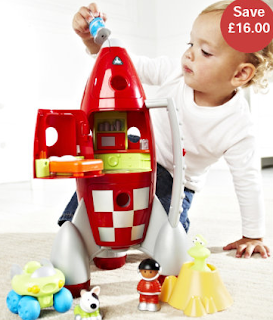A question that has come up time and again to us at VUPbaby is, 'how do we avoid toxic chemicals like BPA getting into our children's food supply?'. To answer this, we have developed a series of tips to help your readers identify these harmful chemicals and practical ways to avoid them:
BPA is an endocrine disruptor, which even at low doses has been linked to health effects such as cancer, obesity, and fertility problems, especially affecting the delicate metabolisms of babies and young children. It is one of the world's most widely manufactured chemicals, mainly used in plastic materials. New research also links Bisphenol-A with coronary artery disease.
How do you minimise your child's exposure to BPA?
Avoid using reusable polycarbonate plastic, particularly baby bottles. Hard, translucent (see-through) plastic marked #7 is probably polycarbonate, which leaches BPA. Scratched or damaged plastic can leach up to nearly double that of new bottles. The plastic used in a particular baby bottle, nipple or storage container may be difficult to identify. Often, they have no marking which would indicate the type of plastic used. Bear in mind that soft or cloudy-coloured plastic does not contain BPA. The most common place to look for the #7 is on the bottom of the bottle, but if you can’t find it, do call the manufacturer. Look for recycling labels in the absence of mandatory labelling.
Keep in mind #3 plastics may contain lead and phthalates and #7 plastics may contain bisphenol A. Instead, choose plastics that are labelled #1, 2, 4, and 5. A safer choice would be to replace your polycarbonate water or baby bottles (and liners) with glass, porcelain or stainless steel ones. If you have trouble finding appropriate bottles, VUPbaby sell a huge range of exclusively BPA-free baby bottles and sippy cups.
When possible, replace canned foods and drinks with foods and drinks that are fresh, frozen or packaged in shelf-stable boxes or glass containers. BPA leaches into canned food (and drinks) from the lining. When possible, and especially when pregnant or breast-feeding, limit the amount of canned items your family eats. Particularly avoid canned soup, pasta and infant formula. If you're formula feeding your baby, consider using powdered formulas packaged in non-steel cans.
If you must use plastics, don't use plastic containers to heat food in the microwave. The plastic is more likely to release BPA when repeatedly heated at high temperatures. Opt for ceramic, glass or other microwavable dishware. Additionally, don’t wash polycarbonate plastic containers in the dishwasher. The detergent may break down the plastic, which could release BPA.
Food containers are not the only things we need to be aware of. Many parents forget that their children spend hours sucking on teethers and dummies/soothers that may have been purchased by well-meaning friends and relatives who are unaware of the dangers of BPA. Hours of repeated sucking and chewing can lead to toxins leaching directly into your child’s system so we would highly recommend ensuring that your child’s dummy, teether, or really any toy that spends a lot of its time in their mouth, is BPA & PVC-free. VUPbaby offer this guarantee to all their toys, teethers and dummies – something you won’t find in the high street! Save 10% on the VUPbaby range until the end of April with the discount code BPAFREE























